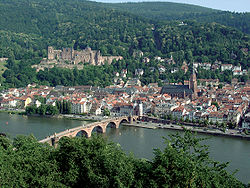Difference between revisions of "Events:CTK-Pre-Hackfest-2010"
From NAMIC Wiki
| Line 31: | Line 31: | ||
== (2) Migrate some code to the repository (e.g. Qt widgets) and use it in our respective toolkits == | == (2) Migrate some code to the repository (e.g. Qt widgets) and use it in our respective toolkits == | ||
| + | Steve: goal to make some progress on consolidating some Qt widgets from our various projects into a repository that we can all contribute to. | ||
== (3) DICOM IO layer on top of DCMTK: interpretation of DICOM data == | == (3) DICOM IO layer on top of DCMTK: interpretation of DICOM data == | ||
Revision as of 14:04, 5 March 2010
Home < Events:CTK-Pre-Hackfest-2010Contents
- 1 The Common Toolkit Hackfest at the DKFZ in Heidelberg, Germany hosted by the MBI.
- 2 Links
- 3 Attendees
- 4 Topics
- 4.1 (1) Memory Management
- 4.2 (2) Migrate some code to the repository (e.g. Qt widgets) and use it in our respective toolkits
- 4.3 (3) DICOM IO layer on top of DCMTK: interpretation of DICOM data
- 4.4 (4) Interoperability of plugins
- 4.5 (5) Generic event mechanism (e.g. event bus, translate events into signals)
- 5 Proposed Agenda
The Common Toolkit Hackfest at the DKFZ in Heidelberg, Germany hosted by the MBI.
| This is a working meeting - the goal is to start writing code! |
Links
- http://www.CommonTk.org (under development - reserved as future home page)
Attendees
- Steve Pieper, Boston
- Oliver Kutter, Siemens (SCR)
- Patrick Cheng, Georgetown University
- Julien Finet, Kitware Inc.
- Jean-Christophe Fillion-Robin, Kitware Inc.
- Julien Jomier, Kitware Inc.
- Marco Nolden, DKFZ
- Ivo Wolf, DKFZ
- Sascha Zelzer, DKFZ
Topics
(1) Memory Management
- Large Image Handling
- Streaming
- Out of core data management (memory mapped files)
- Decide on smartpointers e.g. C++0x/Boost
(2) Migrate some code to the repository (e.g. Qt widgets) and use it in our respective toolkits
Steve: goal to make some progress on consolidating some Qt widgets from our various projects into a repository that we can all contribute to.
(3) DICOM IO layer on top of DCMTK: interpretation of DICOM data
(4) Interoperability of plugins
(5) Generic event mechanism (e.g. event bus, translate events into signals)
Proposed Agenda
Sunday
- 19:00 Welcome Dinner at Hotel Ritter
Monday - Thursday
- 9:00 Transfer by bus from Ritter to DKFZ (Note: every day)
Monday at DKFZ
- 9:30 Short presentation of agenda
- 9:45 – 12:00 Presentation of topic leaders 20 min each including discussion: requirements, existing libraries, … Coffee breaks on demand
- 12:00 – 13:00 Lunch
- 13:00 – 13:30 General discussion Goal: select three topics to start with in smaller teams
- 13:30 – 16:00 More detailed exploration of topics
- 16:00 Presentation of first results, planning of further agenda

